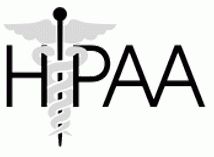HIPAA, or the Health Insurance Portability and Accountability Act, deals with protecting sensitive data related to medical records. Penalties can be as high as tens of thousands of dollars for violations, and when entities have multiple issues of the same type, the charge incurred could be over $1 million. Below, we’ll examine how big data could be useful in helping sectors that follow HIPAA standards remain compliant and keep tabs on records in convenient ways.
It Could Lock Law Firms Down Against Cybersecurity Threats
According to statistics from ALM Legal Intelligence, law firms are behind the times when it comes to staying safe from online attacks. Even establishments that took steps to improve cybersecurity revealed many shortcomings. For example, 98 percent of respondents believed the legal industry faces a rising threat of cybersecurity breaches, but 22 percent admitted not having data breach plans. Law firms are usually affected by HIPAA because they may not send sensitive data once it reaches the facilities, but store it as part of client records.
Experts say big data could be especially helpful in preventing attacks through real-time monitoring, plus highlighting characteristics that may make breaches more likely. Law firms are typically busy places, and the people within them may not think a lot about HIPAA compliance. Big data could secure sensitive information and keep cybercriminals out of legal-specific networks, thereby preventing time-consuming, reputation-damaging attacks.
It Aids Educational Institutions in Seamlessly Sharing Files
Every student at a school may have hundreds or even thousands of associated files, and it’s easy to understand why educational facilities need HIPAA-compliant file sharing services. Egnyte Protect is one well-reviewed option that’s ideal for busy school administration staff members. Intelligent content classification parameters controlled by authorized users scan files and identify if they contain sensitive details like Social Security numbers.
It’s also possible to set access controls for individual files on a dedicated dashboard designed for non-tech-savvy users. How does this relate to HIPAA?
The Family Educational Rights and Privacy Act, or FERPA, covers most school records, but there are still cases where HIPAA is the applicable act. In short, HIPAA relates to “covered entities,” which are usually health care providers that bill for services.
Students may deal with this matter when seeing offsite providers, such as mental health counselors. HIPAA may also apply to immunization records before they get transferred to the school if contracted providers not employed by the school gave the injections. In many cases, associated data is shared among schools, especially if a student moves.
It Allows Health Care Providers to Blend Old and New Methods
The health care industry is the one most people think of in relation to HIPAA, and the sector uses various innovative strategies to maintain compliance. However, that doesn’t mean organizations have done away with older options. In fact, the health care industry is one of about a handful that still uses faxing technology, especially when transmitting patient records to other facilities. Fortunately, cloud-based fax services keep data securely encrypted while it’s static, plus send it to recipients via encrypted communication links. Fax services permit health care providers to continue faxing documents using enhanced, big data-driven methods in accordance with HIPAA requirements. Plus, incoming faxes get processed in the encrypted cloud fax server, then delivered to compatible business applications.
This straightforward solution could help physicians embrace electronic medical records (EMR) more willingly. According to Steve Strongwater, president and CEO for Atrius Health, multiple studies say 54 percent of physicians in the United States feel burned out. He pinpoints EMR as a factor that creates more work for exhausted doctors. A well-built cloud faxing service relieves some of the burden without sacrificing HIPAA compliance.
It Offers a Secure Way for Insurance Personnel to Send Interdepartmental Messages
Contacting an insurance company by phone and getting the necessary answers often takes a while. That’s especially likely if a person needs to be transferred to multiple departments for assistance. Texting is a speedy way to get answers from colleagues, and it’s also a very accessible method. According to worldwide usage statistics, smartphone use will top out at 44 percent this year, up from 39 percent in 2016. There are numerous HIPAA-compliant text messaging platforms that store data securely in the cloud while at rest, as well as during transmissions.
Imagine the convenience an insurance representative would enjoy by telling a frazzled customer to wait a moment so he or she can send a text to an out-of-town colleague who can answer the client’s question from afar. Texting has become a natural form of communication, so both insurance company employees and customers use it instinctively.
These are just four of the many ways industries and the organizations within them could benefit from big data or already do. It’ll be fascinating to see how these sectors become more impactful as a result of streamlined, secure data storage and transmission options like those described above.
 Contributed by: Kayla Matthews, a technology writer and blogger covering big data topics for websites like Productivity Bytes, CloudTweaks, SandHill and VMblog.
Contributed by: Kayla Matthews, a technology writer and blogger covering big data topics for websites like Productivity Bytes, CloudTweaks, SandHill and VMblog.
Sign up for the free insideAI News newsletter.




